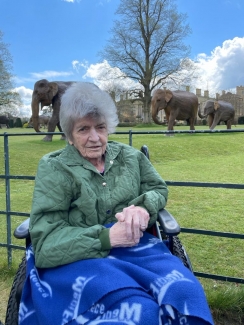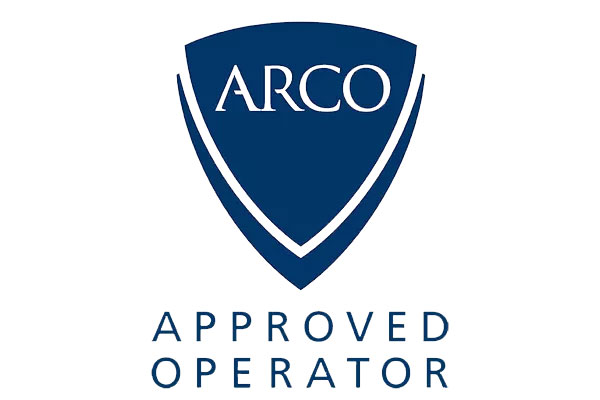
We salute the life of a truly extraordinary gentleman.
There have to be thousands of real life stories about those who sacrificed so much to defend our freedoms and protect our way of life in the face of war and conflict. We are honoured to be able to relate one man’s story - with grateful thanks to his widow, Lady Jenny, who has lived at Newlands for six years.
The heroic experiences of Michael ‘Micky’ Wynn, later Lord Newborough, are frankly staggering. After being invalided out of the Army in 1940, he was given command of a yacht acting as the Air Sea Rescue boat for the Naval air station at Lee-on-Solent. As a civilian he volunteered to sail to Dunkirk to help bring home the evacuating British troops. He made no less than five successful trips before being hit by shellfire. He then returned in another fishing boat to try to round up enemy officers thought to be hiding in the sand dunes at Calais. Thinking he might be arrested as a spy he abandoned his civilian clothes and insisted on wearing naval uniform. Even though no officers were found the Royal Navy recognised his courage and dogged determination. In July 1941 he received a commission in the Royal Naval Volunteer Reserve (RNVR).
“A deed of glory intimately involved in high strategy”. Winston Churchill
It was in March 1942, that Sub-Lieutenant Wynn played a decisive part in the most spectacular and daring seaborne raid of the Second World War. The target of Operation Chariot was St. Nazaire - the only dry dock capable of supporting the gigantic new German battleship, Tirpitz. The prospect of this unstoppable juggernaut patrolling the Atlantic posed a grave threat to the convoys that served as a lifeline for an embattled Britain and all previously attempted bombing raids had failed. Without the use of this base the threat would be neutralised.
HMS Campbeltown, supported by two destroyers and seventeen wooden motor launches, was to ram the gates of the harbour. The British Commandos on board were to destroy vital on shore installations and with luck, destroy the dock caisson. Wynn commanded a MTB74 armed with two delayed-action torpedoes to be fired at the dock should all not go to plan. Under intense fire, Campbeltown rammed the dock gates, and the Commandos stormed the docks and succeeded in their chief demolition objectives but in the heat of the battle the Royal Navy lost nearly all of its small vessels intended to carry them back to England.
An awful decision
After successfully firing his time-delayed torpedoes, Wynn was ordered to return to England and not to pick up any survivors in the water. He disobeyed this order. He stopped his MTB to rescue two men on a Carley float. This he records, “ It was an awful decision...my crew got hold of them but at that very moment the German shore batteries found their mark and two shells went straight through us.” A severely injured Wynn was saved by the chief motor mechanic, Chief Petty Officer Lovegrove, who lead him to join other survivors on the Carly float. In the intense cold the men began to drift away. When the Germans found them twelve hours later only three men were left out of thirty-six. Two days later when the Germans thought it was all over, Wynn’s torpedoes exploded and blew the gates to the old entrance to pieces.
Now a POW and blinded in on eye, he had the satisfaction of hearing the explosion. Five Victoria Crosses were awarded for this audacious raid. Wynn was awarded the DSC, Distinguished Service Cross.
Lest we forget
True to character, Wynn made several attempts to escape his POW captors. It led to him being transferred to Colditz, known as the ‘bad boys camp’ in 1943 where he remained for two years before being repatriated in 1945. And Lady Jenny still receives yearly communications from The Colditz Society in his memory.







